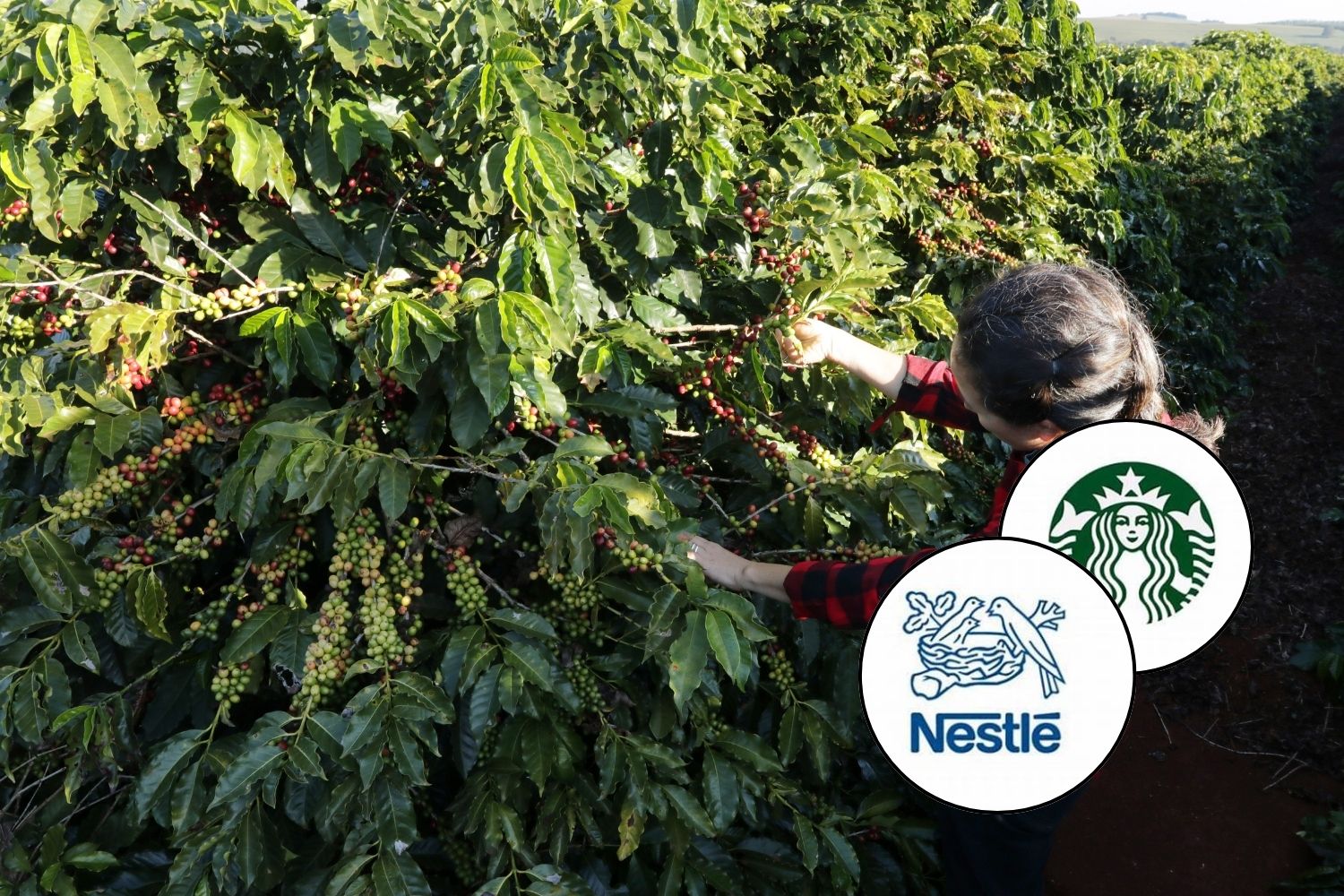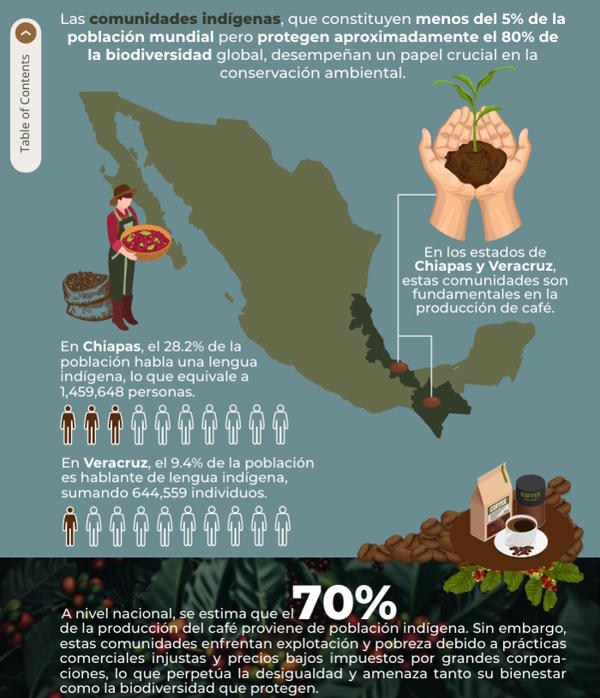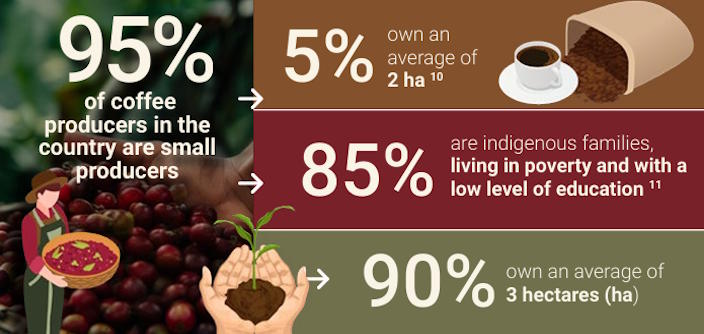New report exposes Starbucks and Nestlé for abusive labor practices and environmental destruction in Mexico: they deceive consumers by promoting ethical sourcing, while trapping Mexican coffee workers in a cycle of poverty, a devastating environment to maximize profits

Have you ever wondered what goes on behind the Nestlé and Starbucks coffee you enjoy every day? A new investigation sheds light on the harsh reality faced by small coffee producers, particularly in the mountainous regions of Chiapas and Veracruz in Mexico.
These coffee growers, mostly Indigenous people, are the ones who literally support the supply chains of these companies, yet they endure opaque practices, human rights violations, and systemic marginalization that perpetuate poverty in rural communities.
These are some of the conclusions of the research Exploitation and opacity: the hidden reality of Mexican coffee in the supply chains of Nestlé and Starbucks, produced by Empower, in collaboration with Coffee Watch and the Project for Economic, Social and Cultural Rights, A.C. (ProDESC).
The investigation
In the mountains of Chiapas and Veracruz, where Mexican coffee thrives, a harsh reality exists that consumers of Nestlé and Starbucks never see in their expensive cups of coffee, reads the report.
This research reveals how Nestlé and Starbucks, through questionable intermediaries and certification practices, have built a model that prioritizes corporate profits and control over the well-being of the small producers that sustain their supply chains, working closely with Mexican government ministries and agencies.
It is important to note that neither Nestlé nor Starbucks purchase directly from the producers. Instead, they turn to traders such as Swiss-based ECOM Agroindustrial Corp. Limited (ECOM), Germany’s Neumann Kaffee Gruppe (NKG), and Dutch Louis Dreyfus Company B.V. (LDC), who, through their subsidiaries in Mexico, purchase directly from small farmers.
The price of coffee is set by Nestlé and Starbucks based on supply and demand. In turn, the traders control the direct purchase from coffee growers, allowing them to influence prices and purchasing conditions, “usually to the detriment of small producers,” according to the report. The latter are the most vulnerable link in the chain, forced to sell their products at lower prices.
Key findings
-
Coffee growers in the supply chain are trapped in abusive labor practices, a cycle of debt, and systemic marginalization, with a disproportionate number of them being Indigenous.
-
Starbucks has used its economic weight to divide farming organizations that traditionally negotiated for better collective conditions. This ultimately affects farmers’ autonomy, forcing them into unfavorable trading conditions.
-
Farmers protesting against unfair practices in the coffee supply chain were violently suppressed in Veracruz, Mexico, with many protesters unfairly sentenced to prison without a fair trial. The protests were repressed both by local police forces and armed civilians hired by one of Starbucks’ importers.
-
Private certifications, such as Nestlé’s 4C and Starbucks’ C.A.F.E., promote a facade of sustainability and human rights protection, while exploiting their producers and destroying the environment, as evidenced by the documented loss of forest cover for coffee cultivation in Mexico.

Coffee trade companies often set purchase rates significantly lower than the production costs, exacerbating the economic vulnerability of small coffee producers.
Ties to mexican government institutions
The report argues that Nestlé and Starbucks are able to maintain this system through close ties with government institutions, with coffee-producing companies exploiting these dynamics to ensure they can continue paying low prices and influencing the quality and variety of the coffee grown.
This report reveals abuses that call for an urgent investigation by the new Mexican authorities and, in some cases, should serve as a warning for the authorities in coffee-consuming countries like France and Germany, where new corporate responsibility laws are in effect. If the authorities confirm our findings, then Nestlé and Starbucks should be held accountable for their practices, says Etelle Higonnet, executive director of the NGO Coffee Watch. Furthermore, we should close certification systems that trap coffee growers in extreme poverty while turning a blind eye to severe human rights violations.
The hypocrisy of coffee giants
The report shows how the coffee supply chains of Nestlé and Starbucks cause not only environmental damage but also perpetuate human rights violations. Coffee cultivation is the sixth leading cause of deforestation worldwide, and the report highlights how environmentally destructive coffee practices are driving the loss of forest cover across Mexico. Yet, both Nestlé and Starbucks promote social responsibility and sustainability practices in their global supply chains.
For example, Starbucks has publicly positioned itself as a leader in the ethical sourcing of coffee and tea, even developing its own Coffee and Farmer Equity (C.A.F.E.) Practices, which include requirements for Starbucks coffee suppliers to demonstrate environmental leadership and the protection of workers on coffee farms, including wage standards and a “safe, fair, and humane working environment.”
Starbucks has positioned itself as the global sales leader through its coffeehouses, cultivating an image of commitment to sustainability, supply chain traceability, and supporting producers, says the report. However, the reality behind this facade tells a different story. The corporate control over production, prices, certifications, and even social policies undermines the promises Starbucks makes to consumers.
Nestlé uses the Common Code of the Coffee Community (4C) certification, which is supposed to ensure that coffee cultivation does not contribute to deforestation or that human and labor rights are respected. Investigations show that this standard may not have sufficient independence and may favor companies. Nestlé also promotes strong sustainability practices on its website, including its commitment to nature protection, ethical business practices, community care, and an action plan for human rights.
At the end of 2024, Starbucks CEO Brian Niccol earned a whopping $96 million in just four months, while Nestlé CEO Laurent Freixe earns over $12 million annually. Meanwhile, Mexican workers who grow Starbucks and Nestlé coffee are paid an average of $106 per month, below the poverty line.
You can find the full report HERE.

